Counselling For Loneliness - What's Happening Both Inside & Outside

External, Social, Environmental Factors Of Loneliness - Relationship With Our Environment & Impact Upon Ourself All of us have felt lonely - a fact of life, maybe existentially lonely at times, especially if we are living in a big city, like London. Not only does what's happening inside (the internal) affect what's happening outside in the environment (the external), but vice versa, where the external also impacts on the internal. And an aspect of our loneliness may have nothing to do with what's happening inside us, but also what resonates and we pick up around us in the environment, including others' moods - for what's here out in the world, ripples in us. What's happening out in the world can be experienced as dysfunctional, alienating, if communal bonds, collective life, a sense of interconnectedness erodes. Social disconnection can be due to many factors, including: a focus on individualism, self-obsession (see also Living As If Only We Count), unsustainability, impact of wars, lack of social safety nets, technological changes affecting our psychology (e.g. alienating work that affects our psyche, working from home and spending our leisure time online, the impact of AI, social media - see also Universal Sadness). It may not be so much loneliness we feel, but more heartbreak. The external effect of these impact on our body, brain chemicals. It is understandable that emotional contact and intimacy with others can reduce, rendering us lonely. (Some of us may desire emotional connections yet fear this.) We can also choose to connect to kindness, love, beauty, nature, etc. so we infuse ourself with positive external factors. The therapy for loneliness, counselling for loneliness also explores what connects, disconnects us, the connections, disconnections in our life.
Differences Between Aloneness & Loneliness - Counselling London
Differences Between Loneliness, Aloneness There can be a big difference between being lonely and being alone. We've all felt lonely, alone, at some point especially when grieving someone or something. We may have let our loneliness, aloneness take us over, losing our self in the process and we may forget to remind ourself that when we are lonely, alone we are still OK, that loneliness, aloneness are also states of mind. Resetting our sense of self, finding our strength for change, being centred, anchored, grounded in ourself can support us. Aloneness can be viewed as being disconnected from our self (where turning to others may be counterproductive to overcome our aloneness), struggling to be with our separateness, whereas loneliness - the feeling we have when we want to connect with another and the other is not available - including heartbreak (see also Types Of Loneliness) and this may also point to a need to connect with community (see also In Tune With Us, Community & The Wider World, Our Interdependence, Interconnectedness, Oneness, Unity, Harmony). Being separate & alone with our self (in tune with our body's connectedness to our emotions & thoughts) is permanent, whether with others or on our own. So although being alone & feeling lonely can be viewed as the same thing, through another lens we could view them differently, that aloneness is about lacking connection with our self - accompanying, tending to ourself in caring, loving ways, and loneliness is about being without company, a lack of meaningful connection with others, including love to & from others. Reinforcing our loneliness, some of us may fiercely guard our independence, believing we've got to do our life alone - denying or repressing any natural dependency needs and our needs to connect with others - a primal need. When we are so lonely, we may have an unbearable feeling of isolation, separateness. At some level this is an entirely appropriate response, because we are separate. And as we become aware of our separateness, we may have a parallel need to be comfortable with our own aloneness (accompany our self - being connected to who we are) and to seek strong relationships with others, be in the company of others in order to respond to our loneliness. This can become a balancing act throughout our life - an acceptance of our temporary solitude, alongside our search for intimacy and interaction with others. This dilemma of how much to be separate, do our own thing, and how much to be part of something, with others, being more comfortable with both (and what we tell our self when we are alone or feel lonely), can be explored in the loneliness counselling & loneliness therapy. Being around people who we connect with, interest us - sharing our feelings, can take away our loneliness. However, being & connecting with people is always temporary. And besides, when we want to connect with another person, they may not be available to connect with - physically or emotionally absent. When with others or in our own company, we may want to accompany ourselves so we are less alone, connect to what matters to us, what we value. And others may have an experience (maybe fleeting at times) that we are never alone - that we are accompanied by guidance, truth.
You cannot be lonely if you like the person you're alone with.Wayne Dyer
Loneliness & Being Alone At some point we come up against huge challenges, when we are alone, lonely. (Yet enduring loneliness is usually better than compromising ourself, when we can't be honest, accepted in false communities without companionship.) People who are alone may lead happy fulfilling lives, being with others when they need to be, so they aren't lonely. Some of us may not know how to be alone, without being lonely. Whenever some of us are alone, we may not like this, as if there is something wrong. We may feel ashamed. Instead of always having to be busy, a challenge for us may be to develop our own capacity to be OK with being alone (and our relationship to solitude) and being with others when we want to be, so we no longer feel helpless, abandon our self, or define all of who we are through our loneliness (see also Identifying, Disidentifying & Integrating All Aspects Of Us), as if we are nothing, unless in the company of others. It's understandable we want to share our experiences with others, yet learning that something can have value, importance and interest, even though we can't share these, can help us. The therapy may also review how we can be comfortable in our own company without being lonely, or be less burdened by certain experiences and be at ease with ourselves & others. We may experience a hole in our soul and the therapy for loneliness can explore this further. (See also Being Alone, In Our Own Company, Aloneness)
Poets, Singer/Songwriters over decades have written/sang about the internal distinctions and awareness of our "me", "myself" and "I" - the interconnectedness and companionship we experience inside ourselves, including loneliness/oneness, as we attend to, accompany ourselves throughout our life within the evolving relationship we experience between our "me", "myself" and "I".
Maybe our "me" is our personality, independence, aloneness, our body-based "me" (and all the different "me's", subpersonalities throughout our life).
The "I" can sense something in me (our felt and observational experience that there is a "me") and may include our ability to reflect, direct and act in the world.
Our my"self" could be defined as our self-consciousness - awareness of our existence, our essence (beyond our ego) and presence, our being - the soulful aspect of us (this includes spiritual qualities, spiritual consciousness - both in and beyond us). As boundaries between self and others dissolve, our "self-experience" (that we are the experience of our experiences) may give us a sense of internal interconnectedness alongside interconnectedness out in the world and beyond, a profound sense of wholeness, peace and for some, a recognition of our divinity, eternity.
Degrees Of Aloneness, Loneliness While it is natural in moderation to enjoy being alone or feel lonely, too much of either extreme may adversely affect us. Most of us value being with others. Some of us crave a lot of stimulation from other people, feeling miserable when this is not possible. Others may be very content with their own company. Not everyone who is alone is lonely. Being alone, simply making quiet time for our self, enjoying our own company, being OK may be what we need.
Heartbreak
The Feeling of Heartbreak The unavoidable heartbreak and emotional pain we experience is part of our authentic core existential life feelings. Heartbreak can include illness loss of a loved one, of our own health or financial security, others being unloving to us, animals, the planet. The emotional pain when others important to us are unloving including our partner, ex-partner can be excruciating and when we are hurting we may shut off from these painful feelings or turn to unhelpful habits or addictions. Others, caught in old wounds may find it hard to grieve or let go. When we are willing to feel the pain of our broken heart, our helplessness with deep kindness, compassion towards ourself, this supports our healing. Referring to the Leonard Cohen quote "There is a crack, a crack in everything / that's how the light gets in", Nick Cave wrote to someone "Understandably, you feel heartbroken about the world - it can feel like a ruthless place, vindictive, and sometimes it seems personal. But I have realised that it is a moral error to compulsively fixate on the world's troubles, to elevate 'the crack in everything' and not acknowledge 'the light getting in'."
Left Out, Uninvited, Not Included
When we are not included, not invited, left out it can trigger feelings of hurt, pain, abandonment, rejection or compound any social anxiety we experience. We can respond by ensuring we don't reject, or abandon ourself - we are kind and compassionate to ourself and that we don't leave others out, so we connect and attend to our belonging needs.
Connecting, Disconnecting, Reconnecting, Interconnectedness
Being Lonely In A Crowd Emotional connection with ourself and the world around us may be important, so we don't feel disconnected inside. It is well known that we can feel lonely in a crowd (and this may point to not finding our own tribe, yet not feel lonely when we are by ourself - see also Being In London). We can be surrounded by people, family, friends, have a busy job, active social life, a stable loving relationship, yet feel lonely (especially if we struggle with small talk). This loneliness may point to a need to belong, make an effort for deeper, more meaningful connection or closeness with others and/or a need to respond and manage our aloneness - our experience of separation, being different. Loneliness can be experienced as a state of emptiness, with lack of healthy, meaningful or intimate contacts with others, whereas aloneness (sense of separateness) can even happen around lots of activity, involvement with others, e.g. whether socialising through our interests, leisure activities like sport, dancing and when we are lonely with others it may be telling us we have closed (or the other person is closed).
Everything is connected.

Connections, Disconnections - Reconnections How We Connect Internally & With Others We all have our own fluctuating rhythm as to how much time we need to spend with others or being on our own - connecting, disconnecting, reconnecting. (Some may forego our quantity of social connections for the quality.) Others may disconnect from themselves (which may be linked to dissociation) by internalising their feelings, withdrawing, withholding. When we have disconnected from others, we are still connected to our senses, our self (see also Belonging). We can't connect with others if we are disconnected ourself (and we may feel shame inside), and when we feel connected, we can share connection rather than try to get connection. Connecting to our own usefulness, inner direction, purpose and values may be important, as may making connections between our past, present, future. Our experience of connection, disconnection may also point to being bored, loss of vitality. Relating with others - our interconnectedness and, if we are in a relationship, making connections with our partner enhances our sense of connection. Sexual connection may also be important for us. Being autonomous & part of a couple, being connected, disconnected, reconnecting, yet remaining emotionally connected with our partner can be challenging. We may mistake going along with others as being connected with them, without paying attention to our own reality. When we feel disconnected for whatever reason, we can become stressed, anxious. The experience of being emotionally connected, disconnected, in or out of touch with our feelings may also relate to how we engage, disengage (see also Dependence, Independence, Interdependence, Codependence - Moving In & Out Of These States), use technology, computer, internet, mobile, social media, gaming, TV, etc. We may be very connected to external reference points (e.g. things, gadgets, etc.), at the cost of our internal reference points, the relationship between our external sense of worth & intrinsic sense of worth may be worth examining. (See also Got To Do It All Ourself). The therapy may also explore our internal connections we make, e.g. how we feel connected to key aspects of ourselves (our feelings, mind, sexuality, spirituality, body (see also Our Body's Interconnectedness To Our Thoughts, Emotions, Etc) - being centred, re-connecting to who we are, being grounded and secure in our body, so we feel personally empowered. For some it can be as if we are connected, yet not always know it (see also Role Of The Unconscious - "The Yet To Be Revealed"). We may overlook that it is our vulnerability that also connects. Nature may also help us connect, feel connected. For others, connecting with our spiritual feelings or a spiritual love has the potential to embrace both aloneness, loneliness. The interconnections, disconnections, connections we experience can also be explored in the counselling. (See also The Connections We Need & Make)
We get to know others through the limitations and breadth of knowledge in what we know about ourselves.

Our First Relationship - Early Connections & Bonding Patterns It is said that conception itself, experiences in the womb including birth complications, medical interventions and interactions between mother and foetus, lifestyle, diet, and level of stress of the mother to be, including her own perspective about the baby directly affect the infant's brain development before we are born. And when we are born, how parents/caregivers instinctively respond to the baby's signals not only continues to influence our biological processes, neural pathways, body, feelings, mind connection, but also influences our view of the world, sense of internal safety, help shape us, so we internalise mother's love, stress, both of which affect us. These early experiences inside and outside the womb are our deepest bonding experiences. When we are born, we are helpless and learn to adapt to get our emotional and physical needs met and what is most important for us especially in those 2/3 years is connection with our primary "caregiver", a biological imperative through pre-verbal experiences & interactions - usually our mother, connection with her body for sustenance, critical for physical & emotional survival (and because we must attach, we will adapt for better or for worse to the needs and vulnerabilities of those who brought us up). If we had experienced a deficit of touch, physical affection, we may now value skin to skin contact, often as a substitute for sex (see also Taking The Pressure Off High Performance Sex). And it is these pre-verbal experiences through our "caregiver's" emotional connection, attuned responsiveness and interactions including soothing, touch, energetic contact skin to skin, eye to eye, brain to brain, being tender, kind with comforting tones, protection and safety (where our attachment figure is capable of reading our mind, being empathic) that enables us to feel held, safe and secure, nurtured, loved, lovable, valued, able to develop the ability to develop and build rapport with others, regulate our emotions, providing us with a safe haven, forming the basis of trust and a secure attachment, which we can take in for ourselves (as we later learn to trust adults, mentalise, regulate our own feelings). This comfort, warmth, smiles, love we receive reflects our essence. The quality and tone of engagement, safety the emotional environment, affection around us, shapes our brain development (building and developing neural pathways), as we respond and interact with our "caregivers" and they in turn respond, interact, play - see also Secure Style Of Attachment/Relating (Becomes Autonomous Style Of Relating As An Adult). Therefore our experiences are determined by the adults around us. Embedded in our early experiences, we may believe everything we think and feel, creating an internal working model. These experiences (including what was sensual, pleasurable, and whether they were validated or inhibited - see also Carrying Shame) support our growth. They help us begin to make sense of our senses, make up the core of our developing self - often invisibly influencing our self-concept, attachment style in our intimate relationships and different dependency needs, shaping the way we react to people now. In order for this healthy connection with our attachment figures - our "caregivers", they need to be connected with themselves, and if they are not, they cannot fully connect with us - mirror us back. Our "caregivers" are able to intuit and read our mind and if we struggled to receive attuned responsiveness, interactions, then we weren't seen as ourself and this mirror we see in our "caregiver" may be confusing (maybe affecting our sense of identity now) and we may also have learnt to only look at others, yet not look into them or truly see them and this can continue into our relationships, for example affecting our anger issues, healthy sex life (see also The Impact Of Our Past Affecting Us Now, Including Our Relationships). Subtle emotional disconnects from so called ordinary events without comfort, soothing affects our early brain development (see also Non-Responsiveness, Empathic Breaks & Frustrations In Our Early Life). Without this healthy role model, disruptions, derailments, traumas, echoes from our early upbringing, fuelled by our early, unconscious beliefs may reverberate now (as we learn to adapt and withhold aspects of ourselves if back then our needs are unmet) and we may continue to experience unmet needs, yearnings from our very early life carried now in our painbody (see also Physical Feelings, Somatic Reactions, Other Reactions). In certain ways we may therefore struggle to connect with ourselves and others, be empathic, which may render us experiencing separation anxiety or feeling overwhelmingly lonely - seeking connection. Fearing rejection or abandonment (and maybe fearing any conflict, or having certain commitment concerns), we may often unconsciously try to fill our need for deep, intimate connection, e.g. in our relationship (see also Lack Of Love - Trying To Heal Our Parental Relationship From Our Wounded Self) by becoming needy, controlling or projecting onto others - our partner (see also Love Addiction, Romance Addiction & Obsessive Love).
Babies are like the raw material for a self. Each one comes with a genetic blueprint and a unique range of possibilities.Sue Gerhardt

The Need For Secure Emotional Connection - Healing From Our Early Attachment Wounds, Lack of Bonding Through the containment of the therapy relationship we can not only explore the impact of our early relational emotional experiences but also make sense of these experiences, influences that shaped us (including the conscious, unconscious actions of those who brought us up now affecting our level of intimacy, empathy, sexual fulfillment) - what we had to adapt to so we can see the bigger picture, revisit a meaningful up to date narrative of our lives and maybe update our internal working model. Old patterns may no longer work for us and allowing ourselves not to know can assist our healing. We may also need to have compassion for ourself as the infant (see also Connecting To The Innocence Of Our Childhood - Our Child Within), our "caregivers" allow for new experiences through learning to soothe ourself, develop our own internal security, reciprocal adult attachments now, (which change our neural patterns), learn to take responsibility so we can now find, identify, bond and be with strong, containing, supportive, positive, safe people we can rely on who treat us with real respect and boost our esteem, encourage and inspire us, willing to be with us in life's uncertainties, challenges, transitions. Every interaction we have with others contains a reflection of our beliefs about ourself and we have the opportunity to learn from each interaction. Therefore, all our relationships and reactions to them provide a fertile ground for change and growth. And through our relationship with ourself (see also Body Awareness - Connecting To Our Core, Supported By Our Breathing) and real connections with others, beyond a surface level in all relationships - at work, with friends, family, our partner where our dysfunctional patterns, fears of engulfment, loss, rejection, abandonment, being controlled, wrong, humiliated, loss of our self or others, our own projections can all get re-enacted, yet also provide us with opportunities to heal (see also Potential To Heal Our Relationship Or Marriage - Considerations). We may want our bonds to be stronger and deeper, to heal any inner disconnection, wounds, self-criticism, unhelpful repetition compulsions, be resilient, have our own sense of coherence, inner continuity, attend to the inner work necessary to connect with ourself by compassionately learning from all our feelings, including the painful and joyous ones. And when we reject, ignore, judge, criticise our uncomfortable, unwanted feelings, turn to unhelpful habits or addictions to avoid feeling them or try to make others responsible for them (e.g. trying to control things, wanting our partner to treat us in ways we would have wanted from our parents or only turn to others for validation, approval, affirmation, reassurance, confirmation, permission, recognition, appreciation, praise, attention, adoration, admiration, adulation, acceptance), we may have abandoned our self, rendering it difficult for us to connect with ourselves and others, including our partner and we may look to them to fill our lacks. It is through the empathic experience of our relationship now (see also Choosing Our Partner) that provides us with the opportunity to change, grow, flourish, relate differently, give, receive touch differently, enhance the quality of the secure loving bond, create a healing space, allow for the potential to heal. (See also Creating A Loving, Trusting Bond)
Our issues only get triggered within our relationship - not when we're alone. Intimate relationships are the fertile ground for teaching us who we are, building a healthy relationship with ourself, healing ourself. The closer the relationship, the deeper the wounds become activated, providing us with opportunities to heal whet we need to heal, learn, love.
Lack Of Love - Trying To Heal Our Parental Relationship From Our Wounded Self Our parents may have been non-responsive, don't always have the ability to nurture us (see also Relationship Style, Attachment Patterns). Some of us may struggle to understand that we can't always directly heal the lack of early bonding, unmet emotional needs with our mother, father (they may not want to change or heal themselves and they too will be carrying their own experiences of earlier bonding patterns). Accepting this, grieving what has been lost (or never acquired), letting go of this hope, can be the start of our healing process as we lessen our ego's grip on us, no longer re-wound our inner child by our wounded self (who may carry shame, self-blame) by trying to get through to our parents from our wounded place yet end up feeling hurt, rejected (re-triggering our own fears of loss, rejection, abandonment). Some may intellectualise what our parents did, yet it may not take away our authentic anger. We may now want an adult/adult relationship with our parents, not adult/child. Our early attachment wounds and latching-on patterns, especially if for whatever reasons our wounded parents (and no parent can always get it right) weren't present for us and couldn't meet our emotional needs have the potential to be healed through the brain neuro-plasticity, when we learn to be our own loving adult to our inner child - being the loving, accepting parent to ourselves, tuning in to our needs, getting them met. And growing up, despite any difficulties with our parents, we may still struggle to fully pull away from them because our "often unconscious" wounded self may continue to believe we cannot survive this healthy separation, yet our adult self can. We can also heal now with all our relationships and through being loved, accepted exactly as we are, this enables us to love, accept ourselves, learn to trust. And it is directly through our intimate relationships that we also have the potential to heal through secure, emotional connections and the more safely connected we are to those we love, the more we can be ourself when we create a loving, trusting bond, attracting a loving partner where we both no longer have to remain at our common level of wounding, but at our common level of health and we are accepted exactly as we are and loved, this enables us to love and accept ourselves. And it is this primal experience of being loved, accepted for exactly who we are, which enables us to love, accept ourselves. And when in our loving relationships (see also The Quality Of Our Attachment Relationship Now), we are able to receive love from others who truly see us and value our essence and we theirs, to know we are held in the other's mind, that we hold them, feel safe in our relationship, this also helps heal our lack of bonding, early attachment wounds so we can strengthen the secure bonds between each other. Some people also greatly benefit from bonding with nature, animals, others from believing, imagining that our soul is on a journey to evolve, learn, love, through spiritual connection. Our own inner healing work may also include visualising, practising self-acceptance, closeness, bringing our self back home (re-owning all the aspects of us that may have been suppressed, repressed), fully inhabiting our body, our self, so we gain a sense of comfort, internal warmth and safety.
Babies are like the raw material for a self. Each one comes with a genetic blueprint and a unique range of possibilities.Sue Gerhardt
Alone, all aloneMaya Angelou
Nobody, but nobody
Can make it out here alone.

Aloneness, Loneliness, Connecting With Our Self, Others & Life We are all different. Some of us enjoy our own company, it gives us the opportunity to do all the things we love to do, tackle things we've put off, learn, be creative & relax (experiencing a deeper connection through being alone, observing, reflecting, supporting our self awareness, without numbing our feelings). At the same time we may need strong, personal connection with others (see also Relating & Sharing With Others - Our Interconnectedness). Some may benefit from being mindful of themselves, their own spiritual practice or religious beliefs, whether alone or sharing their experiences with intimate others, affecting their lives in meaningful ways. (Sometimes connecting with people by just being there, doing simple things, having a laugh, sharing a drink, just being present, may be just what we need.) The counselling and loneliness therapy can explore the feelings of aloneness we have (maybe like a ship passing another at night), what it might mean to not only seek connection with others, so we are less lonely, but also be comfortable with our Self and life itself (see also Navigating Between Being & Doing) when we are alone, where simply being in the moment, connected to our own sense of presence, whether alone or with others, yet in a flow state, can support or transform us.
Connecting With Others Pushing others away at times, inside we may feel shy, unassertive, worrying too much what others think, have a degree of social anxiety yet also have an instinctive need to connect, propelling us towards kindness, intimacy, commitment, contribution to others around us and self-sacrifice. Sometimes this instinct may push us towards being clingy, controlling bringing us up against our own dependency issues, acting out our own drama triangle in the process (see also Healthy Side Of Being Self(ish)).

Loneliness & Aloneness - Our Experience & Responses When we are lonely it can feel like we are in a prison. We may need to find ways to connect with others (outer work), yet when we are alone, we may need to find ways to connect to our self (inner work). We may therefore need a dual response towards feeling lonely and alone. When we are feeling lonely or alone it may be hard to tune in to what will satisfy us and our needs, whether it be making good connections with others, or finding out what connects us when alone. Uncomfortable, a point may come when we are on our own when we ruminate, go round & round in circles, have no one to share our thoughts with, needing the company of others on other occasions, we may choose to reconnect with our self. Some may be seeking a spiritual connection. In the counselling & psychotherapy we may also look at both our external and internal belonging needs, so we are more aligned, close to others and indeed our self (see also The need to belong and share with others). Loneliness therapy & counselling attempts to find out what it's like for you to feel lonely, alone, what helps & what doesn't help, what you need more of and what you might need to let go of.
'I am,' I said, To no one there, And no one heard at all, Not even the chairNeil Diamond
'I am,' I cried, 'I am,' said I, And I am lost, and I can't even say why, Leavin' me lonely still
Relating & Sharing With Others - Our Interconnectedness It is well known that we can be surrounded by people, yet still be lonely even in our relationship. When we lack certain types of relationships in our life, we can feel lonely inside, even surrounded by friends and family, struggling to connect, be at ease, emotionally intimate with them. We all experience loneliness at times, yet our loneliness may become a problem when it settles by becoming consistent and persistent. This may slowly lead to experiencing more negative thoughts, beliefs, behaviours, especially if we begin to isolate ourselves too much. We may feel lost, yet we find ourselves, enrich our perspective, through making connections with others. When we deeply connect with others - being true to ourself and others, we are deeply known. Some of us may struggle with making time for others, relating with them, reaching out to others, receiving from others. Finding our own tribe may be important. We may want to share our interests, passions, be playful, carefree, in the moment, empathic, expand our social circle, boost or nurture our relationships, giving us a sense of belonging. We may put up walls of protection. Some of us may overvalue our independence or solitude. We are also sociable people, needing a certain level of quality interaction, and without this, our communication and social skills may diminish. Simply being in touch with the interconnectedness of nature and all human beings - what we share in common, day to day shared experiences, our passions, vulnerabilities, interdependence with others and the environment, may help us connect (see also Our Need for Love, Connection). Sharing what we have and what is free - kind words, a smile, appreciation and gratitude, what we know, our wisdom may not only help us connect with others but also point us towards our life purpose. Our interconnectedness, emotional connection and relationship with others, connecting to our own inner journey, may also pose questions for us about the interconnectedness of our past, present, future. (See also In Tune With Us, Community & The Wider World, Our Interdependence, Interconnectedness, Oneness, Unity, Harmony)
Blessed is the influence of one true, loving human soul on another.George Eliot
Aloneness, Loneliness - Reconnecting We may not want to feel alone or lonely, yet we do at times. Loneliness and aloneness are not about us being alone physically. It may also be about our personal subjective experience of being on our own, what we make of it & what we do with it. At times we may be missing a deep connection, a certain kind of relationship with another and at other times we may struggle to settle with our self. We may forget our self, need to reconnect, take our own space, be centred, anchored, grounded. Lost inside, we may struggle to be fully present, remember where we are and who we are - all aspects of us, accompanying ourselves so we are less alone. Reconnecting to where we are from may also be important Some of us may wait for others to respond to our loneliness, which may be a long wait. Readjusting how much we give, share, as well as receive in our relationship, may support us. When lonely, creating meaningful social interactions, making intimate connections with others, so we are accepted, less lonely may support us.

Aloneness - Our Need To Be Connected To Our Selfhood Some of us may struggle with what to do with our own company (our separateness), being at a loss when others are not around (or even when they are around). We may have a sense of alienation, emptiness, which may point to a need to be comfortable, at ease with our self - our own company, whether with others or not (see also No Longer Abandoning Us). Getting to know, liking & being intimate with the person we are, enjoying our own solitude and engaging in our own ordinary, favourite or new activities alone is a different challenge to being lonely. If we abandon or stop caring for ourselves, having little self love, our experience of aloneness is likely to magnify. We can do this by comparing us with others, ignoring or discounting our feelings, maybe making others responsible to accept or approve of us, give us what we need. We may also have some unhelpful beliefs about happiness, suffering, love, as if somehow they are not interconnected. And as we accept who we are in our own selfhood, we may also be in contact with a need to belong (see To belong is what makes us human), be in tune with us and the wider world or seek a spiritual path. The therapy explores what personally connects, disconnects us and supports you in staying connected and being true to who you are, anchored in your own ground, able to self-reflect, so you are less troubled being alone in your own company, being your own best friend, befriending your aloneness. (See also The Connections We Need & Make)
Past Influences
Aloneness, Loneliness Now, In Our Past, Questioning Our Future The experience of loneliness & the need to belong can begin in our early years. Painful rejections from our past may compound our loneliness now, as can struggling to lick our wounds when we are alone. Believing we are different to others, it can be easy to conclude that we don't belong or never will, and we can create scenarios & experiences to prove our loneliness & aloneness in our adulthood. These beliefs can go back years. Reflecting on our future, we may be questioning what is our purpose. This can be explored in the therapy. Counselling & psychotherapy can offer support in overcoming our loneliness and how we respond to our aloneness.
Constant Loneliness, Aloneness When lonely from our hurt, wounded place, it is difficult to respond compassionately from our adult self, which has a different quality to it. We all feel lonely from time to time. Our aloneness, loneliness may be one of many feelings we experience. Some of us may constantly feel lonely, feel alone, unable to like ourselves or allow us to be liked by others. Our esteem & confidence may be low. Some of the roots of this may also point to experiences of wounds from when younger. We may have learnt to consciously or unconsciously cut ourselves off or remain stuck in our head because we may be afraid of more pain or hurt from earlier unhealed wounds. Staying in touch with who we are - our own existence, so we don't lose or abandon our self, may be important. Getting over the feeling of loneliness, aloneness by participating meaningfully with others, being OK or thriving at being alone without being lonely may be important for us. How we elaborate our sense of existence by being part of other groups and developing our own individuality, is up to us. For some our anxiety, sense of helplessness, may get in the way.
Empty Inside, Emptiness
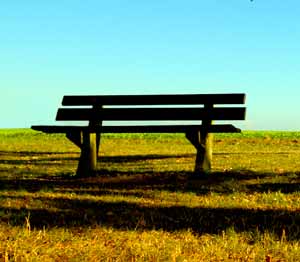

Emptiness, Nothingness - What May Be Happening Inside Emptiness on the inside can be experienced as coming from a deficit, feeling numb, despair or incomplete, that something is missing, which we can't put our finger on (see also Having Substance - Our Own Internal Structure, Being Centred). It can be as if we experience a hole in our soul. As if we are in an empty shell, we may feel groundless, without cohesion, hollow, unformed, undefined, out of touch with our inner life - who we really are. It may be as if life has no meaning, no matter where we are, how successful we are. We may experience a sense of emotional emptiness in us or feel emotionally empty in our relationship, marriage, anxious and impulsively, compulsively try to get any quick fix to fill our emptiness. How we want to fill ourself may be a dilemma whether we fill our emptiness from the outside or within (see also Self-Worth, Safety & Security), so we feel fuller, living a fulfilled life. In an empty mood we may feel low, unhappy, depressed and struggle to feel pleasure in things. We may feel judgemental of ourself, ashamed, insecure, inadequate for feeling empty, which compounds our emptiness. We may want to be our authentic self, feeling safe, loving inside, secure, anchored, grounded in our body, so we are no longer empty or afraid, giving our experience of emptiness our full warmth of attention, being self-compassionate. We may have a sense of just existing or going round & round like a hamster on it's wheel, maybe feeling bored inside (and may want to consider choosing a different way home for a change). In our own company we may feel unsubstantial, believing we are unable to manage on our own. It may also be important to move our focus away from our head & re-connect to all of who we are and at the same time be in touch with the innocence of our childhood, our essence and staying present, being loving in the moment (less focused in negative ways on the past or the future), in touch with our being, so we no longer create our inner emptiness. There may be nobody in our life to share love. Or if we are in a relationship, our pervasive empty feelings may point to an empty love in our relationship, fears of rejection, self-abandonment or struggles with sharing love with others - see also Giving, Receiving & Sharing Love - Loving & Being Loved. (Giving ourself away at times, we may also become emotionally needy in our relationship and we may choose a caretaking partner to fill our emptiness.) Associated with our early connections and bonding patterns, we all have a need to connect with ourself and others. If we have been living only as if we count the counselling and psychotherapy can also explore what happens when we shift our focus from getting something externally towards giving, practising gratitude.

Emptiness, Nothingness Some of us may have bottled things up, numbed our feelings, closed off, shut down. Running on empty, lost or stuck inside, our void feelings may also point to what we are "avoiding" - not paying attention to inside us, experiencing all of who we are and the life & soul of who we are. Maybe afraid of finding out more about ourself, we may at times have pangs of emptiness & nothingness, numbness, flatness, deadness, an absence or void inside of us (especially after a bereavement, relationship breakup or when our love has been unrequited a long time ago or currently). And this belief that there is nothing there - a belief from our wounded self can be reinforced if we are out of touch with our essence, soul qualities of love. As if our shape has yet to be formed we may struggle to form ourself. Some of our feelings may have been squashed down, and embracing them (even our painful ones) may help enliven us. We may be simply hungry for not having our basic dependency needs met. We may hold on to the belief we've held since childhood, that only someone else may make us loved, safe or that we should simply "get on with it". Empty inside, we may have insatiable needs and look to others to fill them, believing we will get filled by getting something externally. We may feel empty inside if others treat us badly, our heart can ache and it may be important we don't make others responsible for our fullness, confidence & wellbeing, so we don't give our "inner child" away. We may miss intimacy in its widest sense. We may struggle to love, soothe, nourish ourself and frequently turn to others for connection, validation, approval, affirmation, reassurance, confirmation, permission, recognition, appreciation, praise, attention, adoration, admiration, acceptance, or to all sorts of unhelpful habits or addictions (including using food, love or sex) to fill us. Others may feel selfless inside over-please, over-give or give ourselves up for others (see also Healthy Side Of Being Self(ish)). When we feel empty inside, numb, our conscious, unconscious intention may be to avoid pain, yet we also end up avoiding happiness. Filling our own well of emptiness through our willingness to fully experience, allow it, accept it first, nurturing our own wellbeing, keeping our heart open so we don't shut down, finding love in the things we do, building and strengthening relationships, giving rather than getting may be important. The hollowness, emptiness we feel may also point to going beyond any dejection towards a call to meaning, call to love (and allowing for not knowing things by being curious). Alongside getting our basic dependency needs met, something else may be missing in our lives, and we may have abandoned ourselves or simply need to belong, make time for silence, stillness, be in touch with our inner sanctuary, sense of purpose. For others a feeling that nothing is meaningful may pervade and our sense of emptiness may point to somehow believing we are not enough or sensing an existential or spiritual vacuum - existential emptiness or existential loneliness, in which our emptiness may be connected to letting go or a longing, yearning or spiritual void. (See also Our Sense Of Coherence & Inner Continuity)
What Else May Be Happening Inside
Our World Of Loneliness, Aloneness We may be happy & content, loved & connected in many ways, yet separate & alone or lost inside our loneliness, aloneness. Sometimes the pain, the unspoken or predictable routines, e.g. in family life or with certain friends, can create a sense of aloneness, which is different from loneliness. We can also be alone & feel lonely in our relationship or marriage. Struggling to trust ourselves, trust our partner, at times it can be as if we are always on the outside looking in. Some of us can experience the pain of loneliness, aloneness or discontentment to the depths of our very core, especially when we are grieving an aspect of our life. Feeling alone or so lonely we may sense there is a void in our world, empty, isolated or desolated, as if somehow we don't belong. Inside we may feel ashamed. Our world may seem mundane. Some of us may struggle with this pain of loneliness, accepting its temporary place in our life at times. Others may mistake depression for loneliness. (See also Belonging)

NighthawksEdward Hopper
Rejection & Loneliness, Aloneness For some, our loneliness can be caused by, or causes us to distrust people (even us), through fear of being hurt or abandoned. (This can also be influenced by our relationship style.) This fear can lead us to alienate ourself from others - even those closest to us. Being closed off around others (and our self) enhances our loneliness & aloneness. The counselling & psychotherapy supports you in nurturing yourself & connecting with others, so feeling rejected, lonely or alone is not so overwhelming. Some may feel very alone, lonely inside, after a relationship breakup. We may fear or feel being rejected, abandoned, lonely, which can be very painful. We can experience intense sadness, sorrow or grief, become self-critical. Physical feelings, maybe a burning or sinking sensation, feeling empty, void, hollow, out of touch with our body or for others a sense of heaviness may prevail, when we aren't with people emotionally close to us (see also Our Body's Interconnectedness To Our Thoughts, Emotions, Etc).

Modern Living - Lonely In London, Alone In London It can feel like we go to a home yet we are away from home. "What is home?" we may ask. Our modern lifestyle (employment contracts, the age of the internet, high proportion of people living or working alone in London) is prone to render many of us being lonely in London, alone in London. Even in London, we may still be lonely, despite all it has to offer. Because of our reliance on technology we may neglect to nurture meaningful relationships & real human contact with others. Feeling lonely in London can creep up on us & we can experience detachment, separation and alienation from other people. We can become anxious that we are on our own without a sense of our own identity and where we fit in, security (see also Re-Connecting To Who We Are, Being Grounded & Secure, Inhabiting Our Body, Standing Up For Ourself). We may be seeking a security outside of us, which we can only resource from inside (see also Emotional Insecurity, Inadequacy). Empty or lonely inside we may turn to comfort food or other unhelpful habits, addictions, which may further contribute to our sense of loneliness, being alone in London.
Pangs Of Loneliness Loneliness can at times be painful. We may notice pangs of loneliness arriving out of the blue. We may believe that our loneliness is a fixed state, yet our experience of loneliness rises & falls, and is temporary.
Loneliness In Us All Soul level loneliness - when we don't share love, have meaningful connection in our life, affects us all. And when discontented, we can experience loneliness as if it is our familiar companion, always there in the background, surfacing into the foreground from time to time. We may believe that loneliness is only our experience, not a human given. Some of us may feel ashamed if ever we are lonely, that somehow we shouldn't be, as if something may be wrong with us. We may also believe we are not good enough, feel afraid, looking from our wounded self to the external world for relief. Battling with our feelings of loneliness as if we are lacking something, we may believe we shouldn't experience this, giving ourself hard time for doing so. Yet we human beings may also be experiencing our separateness, struggling to acknowledge this alongside our connectedness to others, (that we are also not separate) spirituality - whatever this means to us.
Reacting To Our Loneliness, Wanting Someone Or Something To Take It Away Some of us may fear that loneliness may be our permanent state, almost responding in ways to confirm this in our actions, inactions. We may make ourselves like an outsider, invisible at times with others. In response we may try to be with people - any people, just to stave off our loneliness, avoid making meaningful relationships (see also Love Needs, Love Addiction, Love Addicts - Relationship Counselling). Struggling to stop, reflect, we may keep very busy, drown ourselves in other relationships, which may be superficial, unrewarding, compounding our loneliness. Some may respond to their loneliness by always having to keep busy, turn to work or unhelpful habits or addictions. We may always want to be in the company of others even if these relationships are very superficial, unfulfilling. We may have serial relationships, struggle to be satisfied, enjoy, or feel good in our own company (aloneness). Some of us may have developed a pattern, lifestyle, where contact with others, having a social network, and maybe even our social skills diminish. Those of us who feel lonely, empty, alone, may try to surround ourselves with others, rather than having to face our own company, feelings of emptiness, emotional emptiness. Others may do the opposite, hiding away, maybe drowning our sorrows, often accompanied by unhelpful habits or addictions, so we don't have to acknowledge our hurt, pain, face others making connections with them. When we have inevitable periods of loneliness, we may also want to constructively use this time to enjoy our experience of solace, refuge (see also Being Comfortable With Being Alone Ourself) prepare for change, connections with others, for times we are not lonely, reaching out to others.

Turning Loneliness In On Our Self Or Out Into The World People may find it hard to reach us, and even we can find it hard to reach ourselves. We can experience inertia or become closed off inside & to others around us. We may have decided it's too hard or stressful to be in a relationship, live with someone, because we don't want to be with someone who has needs, is needy or controlling, we get hurt or experience the pain of loss, that when we are in a relationship we somehow lose ourself. Yet being lonely, frequently alone, may also be very stressful. How we recreate these painful and isolating experiences (as learnt behaviour, casting ourself as a loner, some may play out our part as the loner, which become self-fulfilling), what they mean for us and whether we are willing to respond differently to our loneliness, reconnect with others, can be explored in the loneliness therapy. Struggling with our motivation & completing things may compound our loneliness.
Got To Do It All Ourself Our loneliness can sometimes be our survival technique, if we want to come across as very independent, not needing others believing we've got to do it all on our own. Yet if we are so independent we may struggle with acknowledging our dependency needs and interdependence, that both I and others have choices and needs, relationships affect us, control is shared, we are more powerful together (see also In Tune With Us, Community & The Wider World, Our Interdependence, Interconnectedness, Oneness, Unity, Harmony). Being comfortable with being separate, so we can engage, disengage and re-engage, asking for what we need may be challenging. Some may feel doomed to feel alone that no one likes us, affecting our self-worth. Others may also be fearing intimacy or have shut down emotionally, overlook being with supportive others. Concerns about being autonomous yet part of a couple, choosing commitment in a relationship may also be a further dilemma for some. Some of us may connect to the sense of never being alone, that spiritual guidance is always present for us. (See also Dependence, Independence, Interdependence, Codependence - Moving In & Out Of These States)
No man is an island.John Donne
Emotional Intimacy With Our Self, Others, Responding To Conflict, Confrontation Lonely, some people can report struggles with being relaxed, in contact with others, having meaningful relationships with others & intimacy. In our interactions we may struggle to express our needs, wants, difference, what matters to us and we may fear conflict, confrontation, which compounds our loneliness. Connecting with our self, being in touch with how we are, can enable us to be in touch with others, and this can be explored in loneliness counselling & psychotherapy (see also Emotional Responsibility, Emotional Energy, Emotional Health, Emotional Wellbeing, Emotional Evaluation, Emotional Strength, Emotional Resilience, Emotional Intelligence, Emotional Growth, Emotional Maturity - Being Emotionally Connected).
Fear Of Being Alone Being alone can be painful when there is no one else to turn to. Sometimes we may be so afraid of being alone, that we establish any relationships, even unsatisfactory ones, with others, rather than risking letting go, being in our own company. Rather than risk being alone, we may choose partners, which don't suit us, yet we may end up being alone, lonely anyway in our relationship. Being alone can enable us to establish a deeper connection with our inner self, recognise our emotions, work out what we really need, restore our energy & plan our future, giving time to embrace nature, silence.
Pangs Of Aloneness Our sense of separateness can come from nowhere & visit us at times as if the weight of our aloneness sits upon us. It may be a challenge for some to respond to being with our own company in less negative ways. These uncomfortable feelings don't have to be fixed or last. And as we allow these feelings to blow through us, they can blow away again. On other occasions we can respond to being alone by seeing and relating with others in way that enrich us or choose this time to develop our own self reflection, observation, awareness.
Discovering the patterns that make us feel personally empty, and what supports us may include:
- Accepting our emotions
- Allowing for change in our life
- Giving ourselves the care and attention we need
- Finding our passion and taking charge of our life may be our challenges as may finding love in all what we do
- Strengthening our relationships with those around us
- Pursuing meaningful goals
- Getting to know ourself better
- Taking steps to follow what matters to us in our life
- Identifying our strengths & working with areas of improvement
- Learning to live with the unknown, uncertainty
Our Separateness
Being Separate Loneliness (or more accurately aloneness) can give us an opportunity to reconnect to the person in us. Some of us may struggle learning how to be alone. The process of separation, and how we manage this, supports our growth towards being an individual. When we are feeling lonely we can also be overwhelmed by an unbearable feeling of separateness - our aloneness. Our struggle may be to accompany our self, staying in touch with our self. Sometimes we can manage this separateness well and other times get anxious, insecure, feel abandoned, unloved. It can be as if we are inconsolable and that our feelings are hard to bear. When alone, taking charge, responding to our own feelings of aloneness, tolerating & accepting that being alone in our own company happens throughout our life, learning to be alone can help us manage our feelings. Sometimes with the best will in the world others can't be there for us or give us approval, affirmation, reassurance, recognition, validation, appreciation, praise, permission or confirmation. How we respond to this may be challenging. For some our aloneness, loneliness, may also be attributed to us being out of balance between what we do and how we are (see Being & Doing - Dilemmas We May Hold).
You do not have to be good."Wild Geese" - Mary Oliver
You do not have to walk on your knees
for a hundred miles through the desert repenting.
You only have to let the soft animal of your body
love what it loves.
Tell me about despair, yours, and I will tell you mine.
Meanwhile the world goes on.
Meanwhile the sun and the clear pebbles of the rain
are moving across the landscapes,
over the prairies and the deep trees,
the mountains and the rivers.
Meanwhile the wild geese, high in the clean blue air,
are heading home again.
Whoever you are, no matter how lonely,
the world offers itself to your imagination,
calls to you like the wild geese, harsh and exciting—
over and over announcing your place
in the family of things.
Being Separate, Yet Part Of Something Being in the company of others, and accompanying ourselves, may be important (see also Dependence, Independence, Interdependence, Codependence - Moving In & Out Of These States). When we are so lonely, alone, we may not only have forsaken others, but also us, maybe our spiritual connection. When we are separate, alone, we may need to find ways of accompanying our self, being at ease with our life. And being at ease with our self when lonely we may also need to find ways to accompany others - giving, receiving and sharing. (See also In Tune With Us, Community & The Wider World, Our Interdependence, Interconnectedness, Oneness, Unity, Harmony)
Overcoming Loneliness, Responding To Our Aloneness, Loneliness - Counselling For Loneliness
Judging Ourselves For Being Lonely We all experience loneliness, aloneness, yet some of us may unhelpfully judge ourselves, that there is something wrong with us. Yet connecting with others is a primal need. Loneliness, aloneness can be hard feelings to manage.
Avoiding Or Embracing Our Loneliness, Aloneness Some of us may try to avoid the feelings of aloneness, loneliness, emptiness, pain that we all feel. And by doing so, we may then become stuck in our old wounds. Keeping ourselves busy with healthy or unhealthy distractions can bring us temporary relief from loneliness yet may not alleviate it, and the more we try to avoid our feelings of loneliness, the more its effect upon us. Experiencing our loneliness, embracing it with compassion, tenderness and understanding acknowledging our loneliness it, that something in us needs attention from time to time may support us, allowing for acceptance and peace of mind. The counselling for loneliness may also explore our expectations and the quality of our relationships both with others and with ourself. And for ourself, the counselling for loneliness may explore if we no longer abandon ourself and are willing to lose others rather than lose ourself, coming from our own authentic self, speaking our truth.
Alone again, naturally.Gilbert O'Sullivan
Protecting Ourselves Against Loneliness, Aloneness Some of us may prefer to numb ourselves, disconnect from our loneliness, which can also affect others pulling away from us. We may try to control others to avoid these feelings. In our moments of loneliness it may help to remind ourselves that even though we are not "feeling" OK, it may be important to reassure ourselves that we are still OK in our own company, so we don't have to automatically go down black holes, avoid our loneliness, aloneness any more, nor abandon ourselves. It can be a challenge to acknowledge we are lonely when we feel it, experiencing it, getting to know & tending to this vulnerable part of us who feels lonely, yet also open to listening to what may be causing this and how we need to respond. (See also Connecting, Disconnecting, Reconnecting, Interconnectedness)
Types Of Loneliness Loneliness is the primary feeling we get when we want to connect with another and the other is unavailable. (This may include heartbreak.) Loneliness has many strengths and what it feels like to be both alone and lonely can be expressed in the loneliness counselling and psychotherapy. Loneliness, like any feelings is giving us important information. One way of looking at loneliness is to distinguish it as degrees & causes of loneliness:
- Loss of the loved one
- Not having a partner, family, supportive friends to share time & love
- Being around others yet closed off to them. Being around others who are closed off to others.
- Through our circumstances - We may have chosen to change our circumstances, or they be chosen for us, for example moving to London, the end of the relationship, loss of job or retirement, bereavement, loss of an important role we had. The identity and connections we once had may have changed. What once boosted our esteem or was meaningful for us, may have disappeared. Our loneliness may have been caused by our circumstances and we may blame our self. Things around us can seem hopeless or futile.
- Unaware of our dependency needs or being in a fixed relating state within ourself & with others
- Having unmet needs or struggling to be aware of them, asking for them to be met
- How we may create our own loneliness
- "Internal loneliness" - our separateness, aloneness
Love is knowing that even when you are alone, you will never be lonely again. And great happiness of life is the conviction that we are loved. Loved for ourselves. And even loved in spite of ourselves.Victor Hugo
Responding To Our Needs - When No One Is There For Us When we experience the deep pain of loneliness, it is understandable we may turn to someone, who is able to take that loneliness away, to be with a special person, who is able to dispel our frightening emotions. Yet they may not be available and even if they are, we may be left with the emptiness inside us. Staying with this experience, acknowledging our loneliness in a safe, contained way (and avoiding the temptation to escape into fantasies about others who would take it away or turn to unhelpful habits or addictions) can enable our pain to be available for healing and the open space of being with ourself for solace and refuge (see also Being Comfortable With Being Alone Ourself).
Responding To Our Needs & Attending To Our Loneliness - Aloneness Through Being With Ourself Embracing, welcoming our feelings of loneliness can open us up to learning what it's telling us - maybe to love ourselves through it, once we name it, embrace it with compassion or to reach out and connect with others (and ourself in all different ways). Simply being comfortable with our being, feeling good about our self, being interested in something, can take away our loneliness. Loneliness (like solitude) may not only be about our daily circumstances, or whether we're loved, but also be about what is unattended to in our life. (Ian McGilchrist notes we need three things to attain a meaningful life - outside the rational, scientific: community and society, a connection and understanding of life's natural order, and thirdly some form of relationship with what is sacred or divine - whether through beauty, nature, art, music, religion, as we encompass a force that holds the world together.) Besides doing day to day tasks, we may need to be in touch with what gives us meaning & purpose, spirituality for others, our creativity, what inspires us, so we can also inspire others. Being in touch with our own worth & the worth of others may be important for some as may getting in touch with what supports our wellbeing, being in nature with animals or simply being in our being.
Responding To Our Needs & Attending To Our Loneliness Through Being With Others Being with others affects us, helps us connect. And we may become less lonely in contact with supportive others, having genuine conversations, as we get to know and share more of who we are. Some of us may struggle to acknowledge that we need to belong & connect to others, so we can share our interests, passions, ideas, experiences, values and love with. If we are lonely or alone it may be telling us we need to connect with others in loving ways. How we are with our self and engage with others, responding to what we need, can support us. Creating & nurturing a range of meaningful, supportive relationships may be a need.
Responding To Our Needs & Being Comfortable With Others All of us have experienced being uncomfortable in social situations. We may get anxious in the company of others at times. Some of us may struggle with setting our boundaries, saying "No", some with being assertive, others with expressing their feelings, sharing empathy.
Being Alone, In Our Own Company, Aloneness
Being Isolated, Separate For those of us who tend to be introvert it can be easier to isolate ourselves (see also Counselling For When We Isolate Ourselves - Tuning In, Opening Up & Protecting Ourselves When We Need To). Alongside isolating ourselves, we have all had experiences of being alone, even in the company of others (see also Isolating Us Or The Relationship). Some may go numb, shut things down. We may have been isolated, singled out, by being:
- In trauma
- Fearful
- Different, separate in some way
- The last in the queue
- Unseen by others
- Teased, ridiculed, humiliated, shamed, maybe when younger
- Simply being aware that we have no company and are on our own
Learning To Be Alone Just because we have felt lonely, alone in the past, doesn't mean it has to be this way now. When we are alone we may struggle to be in touch with, accompany our self, and this can be explored in the counselling & psychotherapy (see also Counselling For When We Isolate Ourselves - Tuning In, Opening Up & Protecting Ourselves When We Need To). Some of us can panic when we are left alone, struggling to relax in our own company, let go of our inhibitions, enjoying the experience as a place of refuge, solace (see also Being Comfortable With Being Alone Ourself). Spending time, doing simple, day to day tasks, concentrating and putting our attention onto the things that we enjoy or interest us, acknowledging that these times on our own can be rewarding, can support us the next time we are alone. And when we feel comfortable in our own company, we may also be able to reach out to others, more able to give, with less of a hungry need (though some of our basic needs may also need to be met).
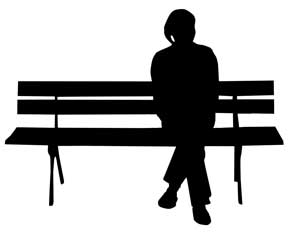
Aloneness When we feel alone we may become despondent, low, depressed, disappointed or maybe agitated, as if something is stirring, that somehow we shouldn't be alone. Yet at one level we are alone with our self all the time, from birth to death and in-between. Our aloneness (this "inner me"), experience of separateness, accompanies us throughout, as we enter into the world, leave the world and all in-between. How we respond to our own journey in life, a lifelong journey only we can undertake, is in our hands. Accepting this natural process may be our challenge. Throughout life we experience many losses, separations, connections. Things come into form (like little births) and things end (little deaths) throughout our journey. The word "aloneness" (all oneness) contains the word "oneness", and this connection to oneness may be important for us. Some may hold spiritual, religious beliefs, which supports & connects them when alone or with others.
Valuing Our Time Alone We may value our "me" time, daydreaming, being creative, reflective. Appreciating ourselves, valuing our alone time, experiencing what we enjoy, what nourishes us, navigating between being and doing, being good company and connecting with our Self, loving ourself, and being present in the moment, so that we can rejoin the world with us can also bring us peace of mind.
Responding To Being In Our Own Company
Experience Of Being Alone When On Our Own Or With Others We may have ambivalent responses about tolerating, enjoying our own company (aloneness). Sometimes we know we want to be on our own, and other times prefer to be with others. We may also have different needs at different times, enjoying being close with others for a while, then knowing when we need our own company (see also Being Autonomous Yet Part Of A Couple). Yet the world doesn't always synchronise itself to our needs. Struggling to accept we are alone at times - in this temporary situation, we can choose how much to be anxious about this and how to respond to this. When alone, we may want to enrich our life, absorbed in our own activities at times, comfortable in our own space. We may feel OK, at ease, relaxed with who we are, doing day to day things, maybe creative or resourceful at times.
Solitude Some of us keep so busy with distractions that we make little time for just being with our self. Yet periods of respite on our own are sometimes necessary. Some of us need to be alone to get to know ourself, be comfortable in our own skin. Others may be concerned about becoming a lone wolf. We can choose whether or not to get satisfaction & pleasure from solitude, making time for periods of reflection, interaction with ourself. This can be as simple as taking a few moments to connect with our self, watch our busy minds, allowing ourselves to be still, silent. And in these periods of solitude, our mind can quieten, as we connect to our innermost self - this may include observing the flow of our emotions, thoughts, maybe spending time out in nature. Being in touch with and responding to our own needs, interests, passions, can be a source of our contentment & stability. The experience of solitude can be precious and rewarding, helping us thrive (artists, writers, etc. know this well), facilitating our creativity to emerge, when we are in the creative space on our own, also having time to reflect, read, write, contemplate, get to know our own conscience, meaning & purpose, daydream or just let our mind be. The experience of solitude can for some point us towards spiritual growth. (See also Responding To Our Needs & Attending To Our Loneliness - Aloneness Through Being With Ourself)
Being Resourceful When We Are On Our Own Or Excluded Some of us may be bored, restless, unhappy for no clear reason. When we are on our own, our esteem may plummet as we blame ourselves or resort to activities, which exclude contact with others, being proactive. Sometimes we may be left out of things, excluded. Accepting these feelings, doing the things we love (see also Being & Doing - Dilemmas We May Hold), recognising our own value, acknowledging what makes us feel special, exclusive (as oppose to excluded), can help us feel better. Exploring ways to be happy, do simple things, keep us mentally busy, tackling new things, developing traits, interests, habits can help us be comfortable with being alone in our own company. When we spend quality time in our own company, we can feel mentally & spiritually refreshed. Relishing our own company, peace & quiet, inner calmness, having a sense of security from the inside may be challenging yet what we need.
Being Comfortable With Being Alone Ourself Being all by ourself, relishing these periods of time on our own, our strong vulnerability, practising being alone with our self, discovering spending time with our self with compassion, feeling and attending to, enjoying our own company, space, maybe important to us. Some of us may want to be more at ease having healthy downtime spent alone in our own activities, maybe quiet or undisturbed at times in a place of refuge, solace, listening to our self, being OK, simply enjoying our own company. We all have a solitary place within us, that no one person can reach - an inner us, which is always alone, a place where we may daydream, reflect and it is this that can be explored in counselling & loneliness therapy. Getting to know and being comfortable with this "inner me", attending to, valuing, accepting our self may be a need and can open the space to be comfortable with others. When we are comfortable with being alone, the less we want to abandon ourself, when we recognise, acknowledge our lovability. And as we see, understand and are at ease with who we are, this can enable others to understand, see our self and although we value our independency we may overlook our other dependency needs, including the need to be in the presence of others.
Inside myself is a place where I live all alone & that's where you renew your springs that never dry up.Pearl Buck
Belonging
Making Space For Our Self Inside we may not fit in at times, as if we don't belong anywhere. When we have spare time alone, some of us can get anxious, not feel OK and we can put all our longing needs into our relationships (see also Our First Relationship - Early Connections & Bonding Patterns). In our own company we may feel unsubstantial, believing we are unable to manage on our own. Feelings which are hard to tolerate (e.g. fear of rejection, abandonment) can come up when we're on our own, and we can make ourselves busy with things to do to distract us from getting anxious. This can help at times. Yet our anxiety may never quite go away (and some of these may point to existential concerns). Sometimes it is as if we are in a cocoon, and we don't want to be there, yet need to be safe. We can become lost, as if we don't belong anywhere or feel ashamed, afraid, as if the world outside is threatening. Making space for our self, pausing for a space of a few breaths may matter to us. Being rooted, in touch with our own body (see also Body Awareness - Connecting To Our Core, Supported By Our Breathing), anchoring ourself with our own anchor points can support us coming into our self (see Re-Connecting To Who We Are, Being Grounded & Secure, Inhabiting Our Body, Standing Up For Ourself). The different roles, identities we have can also give us a sense of belonging. Simply how to be comfortable with who we are and compassionately attend to our own company, aloneness, can be challenging. Some of us can have a stronger sense that we belong by making space for ourselves and being in touch with our own integrity, learning, trusting we will enjoy our own company, be self-nurturing, avoiding unhelpful distractions, listening & following what we really need - what enriches, supports us to flourish, be in touch with & "find our self", being as well as doing, actively present. (This supports our self-worth.) And when we are in touch with our being we may also be in touch with our longing.
All the lonely peopleThe Beatles - "Eleanor Rigby"
Where do they all come from?
All the lonely people
Where do they all belong?

To belong is what makes us human - where we feel safe and separate. The need to belong, join in & share with others, to humanity, community and be part of something outside of us - inclusivity, dedicating ourselves to others, be part of a group, connect, share empathy, is a primary human need (Maslow's hierarchy of needs refers), so we don't only live our life as a lone wolf, be overly independent, remain empty inside or become depressed. Benjamin Franklin once remarked, "Tell me and I forget, teach me and I remember, involve me and I learn." and to belong, we need to get involved - see also Drive Towards Our Emotional Growth. (On a profound level, we may need to feel whole, connected - in union with ourselves, others & the wider world, which can mean different things for different people.) Other people may also need to belong in similar ways to us, and it may be hard to accept we are not alone in our experience - that there are countless others who feel similar to us. It can be challenging to dare to believe that others are right there, next to us, waiting for us to make a sign. Counter-intuitively it is we who may need to reach out and connect with others, maybe chat with a neighbour, smile to a stranger, give others comfort, send a message to a fiend or a family member - even if it is just to say "Hello". These may help remind us we are a part of a larger community. Through making connections with others - belonging, we find ourselves and are able to check our realities, so they are not distorted. This supports our self-worth. Being with supportive others, making time for them, doing what we enjoy with others, nourishes us, help us know ourselves. Yet we may feel like an outsider, invisible at times with others. Social anxiety may be an experience. We may want to engage in communities, be part of communities, build communities. And for some letting others into our lives with humility can be risky, especially if we choose to share our vulnerability, any suffering, yet sharing this from our heart can help connect us with others. Being open and authentic with others, checking in with them, asking questions, sharing regular updates, news and creating space for feedback gives us a sense of belonging and this increases our motivation and wellbeing. It also helps to create a sense of connection and inclusion, enables us to feel a part of something bigger than ourselves, as we express gratitude, appreciation, making us feel valued and seen. Being with ourselves and in our own inner authority, involved, at ease in the company of others, that we belong & rediscovering our sense of humour, playfulness, laughter, may be important for us as we affect others and they affect us (see also In Tune With Us, Community & The Wider World, Our Interdependence, Interconnectedness, Oneness, Unity, Harmony). (Some may have difficulties sharing love.) In our need to belong we may confuse longing with loving in our relationship or our longing, searching for love (see also Our First Relationship - Early Connections & Bonding Patterns). Being connected with those we love supports our sense of worth. This spirit of our desire, desire for contentment, embracing love and embracing ourselves with compassion and understanding may support us. When we are grounded understand that everything belongs (even the absurd, sad, difficult or excluded parts) and that we belong to the world and the world belongs to us, and our heart is open, we find it easier to make others welcome, accepted and connected, and can take initiative with our generosity of spirit, giving everyone an experience of belonging. Love and union with others, participating in the wider world, may for some include being in an interdependent relationship with a sense that everything is connected - part of one thing, that we are not alone, we are one (see Seeking Deeper Meaning) and for others may lead to their own spiritual enquiry or a search to know a spiritual Love (see also Wellbeing Of Others - Generosity Of Spirit, Altruism, Being In Service Towards Others, Acts Of Service).
You only are free when you realize you belong no place — you belong every place — no place at all.Maya Angelou
Existential Loneliness, Alienation, Pain

Existential Alienation, Existential Loneliness Loneliness is also connected to our authentic core existential life feelings including heartbreak, emotional pain, helplessness at times (see also Being Restless Yet Not Knowing Why). Feeling lonely, alone, separate, alienated (maybe from our self) or disconnected may point to our unfulfilled drive towards emotional growth, existential concerns. (For some, our sense of alienation may point to a dysfunctional world we live in - what we do to the planet. For others our sense of alienation may point to alienation from the divine - our essential essence, nature.) We may question our experience of deep loneliness or sadness relating to our very existence - that we are. We may have an existential need to belong, to be a part of something bigger than just us. We may wonder where and how we belong. What this something means for each individual can be shared in the therapy. We may long or yearn for something which is difficult to describe. We may experience a deep sadness, right to our core. In despair our hope may be elusive, as if things have no meaning, nothing matters, compounded by the limitations of our mortal life.
Existential Pain When our heart is open and others around us are closed, we are not able to connect, when we feel helpless in our interactions with others. And this can bring us existential pain. Being loving to ourself, taking loving action, may be important.
Aloneness, Loneliness & Re-Connecting To Our Body
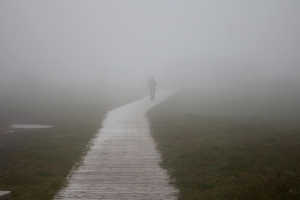
Fleeing Our Body When younger we may have tried back then (and continue to do so now) to change things on the outside, so we can feel safe, in control, go to a place we can escape to, yet be out of tune with, cut off from our body (may be linked to trauma). So when things got too much for us - as a form of protection, it can be as if we leave our body as a flight or freeze reaction - having no other choice to escape and when things now overwhelm us - out may we go again. Therefore, when we don't feel OK, some of us may have an experience of our body being unformed, "out there" somewhere as if our feelings, mind, body are not very connected, watching ourself from afar (see also Relationship Style, Attachment Patterns). Choosing whether to stay or go and moving into our body, tuning in and listening to it, being solidly in our whole body, grounded, centred, anchored, stable - trusting our own space, personally empowered, may be challenging for some (sometimes having a weighted blanket or grounding sheet can assist). When overwhelmed, rather than take care of our abandoned self, being in our body, this wounded or traumatised part of us may bypass these uncomfortable sensations by remaining stuck in our head, fleeing to our mind or towards spiritual enlightenment, needing & believing that this will provide us with a sense of safety, worth and love (which we struggle to give to ourself) because things are too overwhelming for us to stay present with. (See also Body, Feelings, Mind, Epigenetics, Environmental Connection, Self-Regulation) Some may feel paralysed over making decisions. Panic attacks may be experienced. The therapy also supports us in fully inhabiting our body, feeling safe enough inside.

Our Body's Interconnectedness To Our Thoughts, Emotions, Etc Some of us may not only feel disconnected, isolated in parts of our lives, but also isolated, disconnected, out of touch with our body (see also Fleeing Our Body), senses and being in touch with the connection between our body, feelings, mind & imagination - listening to what is being communicated may be important to us. As if things aren't interrelated we may miss out on the spider's web of interconnectedness (see also Internal Interconnectedness - Mystery Of Time & Connecting Consciousness To Our Past, Present, Future, Sensing Our Aliveness, Space Beyond Us), interdependency, if we are over-attached or identified with a limited aspects of ourself. Our physical symptoms, physical feelings may be indicating to us information about our emotional health. Some of us may numb our feelings, shut down, bottle things up (including our tears) affecting our body (see also Our Painbody). Being present - in touch with our feelings and body, being anchored, centred and grounded may support us. And being in touch with our body enables us to be in touch with our self. When plants & trees are put under stress, they show physical signs. Our bodies too show subtle or direct symptoms of stress, etc. Sometimes, often through fear, we can hold on too tightly to things (memories, failures, etc.), finding it hard to relax. By holding on, our body can manifest tension symptoms ("Where the body holds - the tension goes"). It is as if our anger, trauma, fear, anxiety, depression, grief, sadness & sorrow, or heartbreak, can get stuck in our body, and our pain can cause us physical & emotional reactions. Giving our mind space also affects our body. Some of us view our body, emotions & mind, as separate entities, yet they are intrinsically linked as we expand, contract. So when we let go of tension in one area, it affects the tension in other areas (e.g. shameful, angry thoughts produce emotions physically affecting us). In the therapy you may be encouraged to pay attention to your thoughts & emotions, alongside your physical feelings - what's happening in your body. Psychotherapy & counselling offers support in releasing any pain or tension we are willing to let go of physically, mentally, emotionally and sexually. (See Releasing Ourselves & Letting Go)
If you have built castles in the air, your work need not be lost; that is where they should be.Henry David Thoreau
Now put the foundations under them.
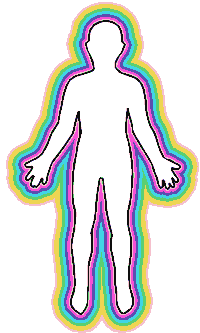
Re-Connecting To Who We Are, Being Grounded & Secure, Inhabiting Our Body, Standing Up For Ourself When we were younger, we were more physically expressive in our body - just being. Now we are often busy "doing", caught up in our mind or have bypassed our feelings. Our body is our personal boundary - our own tangible structure & substance in the physical world, so we are not borderless, groundless, without cohesion, or hollow, empty inside. Trusting the solid form of our body, being rooted, upright in our body, in our own structure, aware of our physical sensations, supports our experience of being grounded - no matter what's happening around us - reminding ourself "I'm exactly where I need to be in this moment". The spirit of our desire can also support us so we don't collapse, disintegrate, feel insecure or ungrounded. Grounding ourselves is the experience of being present - "I'm here in my body". Our moment by moment existence, breathing through our living body (e.g. pleasure & pain, joy and grief, uncertainty, vulnerability & power) can be experienced as our energy inside of us. Being in tune with our body & all its senses - what we can see, touch, hear, smell, taste, at the same time as being able to observe our self in the world (less preoccupied with likes/dislikes, good/bad, right/wrong - or needing validation, appreciation, affirmation, acceptance just sensing ourselves as we are) may support us, help us be in touch with reality. And when we are more connected, in touch with our body, integrated, resilient, standing on our own two feet, holding our self, alive to our own personal space - filling it, embedded, inhabiting our body, experiencing our own vitality, we feel more secure, stronger in how we feel, potent & confident, able to protect & defend ourselves when necessary and participate in the world. It may be important for us to explore our own needs - to know & care for ourself, so we solidly belong in ourself, inhabit the structure of our body, with our sense of security (see also Secure Style Of Attachment/Relating (Becomes Autonomous Style Of Relating As An Adult)), centred, anchored & grounded in who we are - being our self with our own reference points, so we can ride the unfolding waves of the feelings, emotions we feel, our stress, fear, anxiety, self-esteem, confidence and insecurity, feeling low or depressed, alongside any uncomfortable thoughts. Mentalising, being in touch with our difference, separateness, own space, emotional security, difference & identity - being the man or woman we want to be, taking ownership & responsibility for our self, feet on the ground, connected, grounded in body & soul in who & how we are in our self, supports our self-worth, courage (maybe choosing the longer way home for a change).
Change your opinions, keep to your principles; change your leaves, keep intact your roots.Victor Hugo
Having Substance - Our Own Internal Structure, Being Centred Some of us may feel numb, as if we are an outer shell, empty inside, with little substance, internal structure. We may not find it easy to feel our feelings. Isolated & lonely inside, it can be as if we struggle to belong, that we lose our self when alone. We may become stuck, lost, stagnant or low, procrastinate. Sometimes we may want to give up, preferring to hide away, fearing responsibility. We may struggle to tap into our own passions, inspiration, aspirations, purpose, what gives us meaning, our internal resources & self-assurance to support us, motivating us in life. Out of equilibrium, we may want to step back and work out what personally pulls us off centre, what areas in our life are out of balance and what adjustments we need to make. It may be important for us to reconnect to our self with our sense of being a complete woman, man of substance with our own integrity & authenticity - whole, safe, comfortable with who we are & loving inside, in touch with our personal experience of a space - our own space, centred, grounded and secure. It may be important for us to be anchored in our body, in touch with our own inner sanctuary, create space & quiet time for us, take pauses, be able to observe, reflect upon our self-awareness, be settled in ourself. Things may have also happened in our earlier life. Other people challenged & supported us, and we went along with things, which gave us a structure. Yet we may have followed the life others expect of us or be pulled in a different direction, not of our own free will, sense of empowerment, without following our own path. Sometimes we may resent it if we become dependent on others giving us what we need or when we have needed others to guide us, validate us. We all need the support of others in our life, yet at times we may have allowed others to give us a structure we believe we can't find in ourself. Therefore, giving what we see or want from others to our self, may be a challenge. Counselling and psychotherapy can help ascertain what support systems benefit us and what ones don't. The counselling will also explore how we no longer abandon ourself, how we listen to ourself, our emotional life, physical feelings - what is happening in our body, so we feel more alive, connected, present.
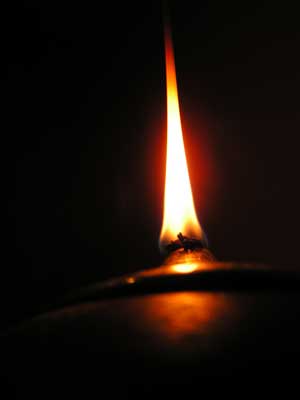
Feeling Safe In our body - Connecting To Our Centre Embodying ourself, being centred - in touch with our essence or core self, for some can be experienced differently, yet a common denominator is to be fully inhabiting our body - our self, being in our body, tuning into our senses experienced energetically so we feel safe in our body. Others can feel safe in our body, connected, in our element, when gardening, dancing, singing, playing sport, participating in yoga, qigong, creatively expressing ourselves, and a whole range of other physical activities we fully participate in. We can also feel more centred when navigating a difficult, yet heart-warming conversation or being out in nature. During or after these experiences we may feel alive, vibrant, safe yet adventurous, appreciative, connected, inspired, empowered, present, open-hearted. As if we were like an uninhibited child again, when in this place, it can be as if our body moves more spontaneously & naturally as a whole, often directed from our lower torso, attuned to something deep in our core, allowing this to direct us, rather than our head leading. Breathing, relaxing, sinking our focus away from our head back into our solar plexus, placing our hands over our belly - just below our navel or heart area can also help us feel centred, calmer, safer. Opening up to mindfulness, meditation can be easier when we are centred, at ease with our body. (See also Silence, Inner Stillness & Balance)
Reclaiming Our Own Ground - Our Inner Stability Taking our place, feeling substantial, being in and holding our own ground may be important to us. The ground we are also from echoing back in time may influence us now including our demeanour, how we carry ourself. When younger we may have given our space or boundaries away, our own stability & ground, and want to reclaim it - what is ours, bringing our self & attention back into our body matter - that we matter & are embodied (see also Fleeing Our Body), trusting our body (see also Relationship Style, Attachment Patterns). Being grounded, internally balanced (see also Balance In The Relationship Or Marriage), feeling intact in who we are with our sense of coherence and inner continuity, without putting pressure on ourself that we should always know things, can support us, so we are not easily overwhelmed. How we feel about our body may also impact upon our experience of being grounded. And, as we experience more of a connection to ourself - being with ourself - in our own ground, we can connect with others, further develop our capacity to have empathy for others. What grounds us varies from person to person and includes being in touch with our body, our breath, senses, nature, doing physical activities, being still, having peace of mind, letting go, belonging, following our own path, passions, inspiration, purpose, integrity, having affirmations, creating a loving, physical space (real or imagined). Our groundedness can give us a sense of being out in the world, in touch with our physical vitality - being alive in the world & present. "I am still here - no matter what is happening." And when we know, sense & feel safe in our own ground, we feel less lost, more connected. This connection to our own inner being, secure in our own company, internal presence can be experienced in our own body, breath, e.g. taking a few deep breaths into and out from our body, etc. can support us, so we know & sense we belong inside our own skin, are empowered with our own, distinct boundaries, entitled to be here - anchoring ourself in our own positive experiences we have now (see also Mindfulness). The experience of being present - living in the moment with our momentum, and where we put our attention, may be important to us, being grounded in the world as we are able to take our own stand - stand up for ourself, feel our feet on and in the ground, be stable, solid and rooted, like an oak tree - a process that includes going beyond our thoughts and feelings, into our inner stillness, connected to our own existence, values, conscience & integrity & responsible for what we make of our own experiences, taking ownership of who we are, free to walk our own path in our own authority. And the steps we make on the walk - our walk, may be important, so they become the expression of our personal will in action.(See also Personal Freedom, Individual Freedom)
Body Awareness - Connecting To Our Core, Supported By Our Breathing Shifting our attention, awareness - our felt sense of ourself, away from our head, or chest supported by breathing down into our core, so we feel centred, grounded, present in the moment, allowing gravity to drop, can for some be experienced in the solar plexus, "centred deep in our belly" - our lower intestine, gut (this sends reassuring messages through our neuro-endocrinal system that we are consciously in control). We may feel more in touch with our core self (see also Our Sense Of Coherence & Inner Continuity) by placing one of our hands just below the abdomen. This centre of our being, our hara (the state of being grounded in our body, mindful, kind), is in traditional Chinese medicine the lowest of three dantian. This centre of our body is described as being located a few inches below the navel, and can be experienced as a sense of inner fullness in our belly, connected to our integrity. And as we automatically breathe into this centre, we can drop our ego, "feel ourself", have an experience of coming home to ourself, without needing to process, figure things out or analyse - see also Physical Wellbeing - Being Well, Body Vitality, Anchoring Our Breathing. (Some may feel connected to themselves through imagining bringing their attention down from their head through their heart into their belly.) From this stable place we are able to meditate easier. Analogous to meditation, when calm, still & rested, taking space for pauses, creating quiet time, observing, reflecting, some can experience their life force unfolding, a place where our intuition and inner child live. We may have a sense of calmness, safety, confidence as we rest in our essence. And we may be more able to notice the different quality of our thoughts, rather than be caught up in them, fighting them, denying them, believing them. For others a different sense of our essence can be experienced from the warmth and openness of our heart, as we allow it to open, with our intention to learn, instead of control, where love in its different forms can be more accessible. As we open our heart we may become more compassionate, loving & caring. For some these experiences may lead them to spiritual enquiry. (See also Making Space For Our Self)

Anchoring Our Self Some of us may feel lost, stuck inside or stressed, want to buffer ourself against any storms. Anchoring our self and integrity in the place we can always return to - our body, in touch with the naturalness of our breathing, making contact with, observing and witnessing all our senses, thoughts can help us feel safe, stabilising us in the present, in our own field of awareness, maybe with a sense of connection, completeness, in touch with our sense of being, centred in our own ground, with our resilience, personal boundaries. Important anchors or reference points for us may also include using affirmations, choosing a safe place, which we can call upon from our past - holding this now in the present, anchoring ourself in our positive experiences (including a ritual, a breath, memory, utilising our creative imagination), being in touch with what's important for us, our intention, inherent nature, values, conscience, listening to our own inner voice, no longer abandoning ourself and being in touch with our intrinsic sense of worth so we have a sense of belonging whether or not we are with others and experience silence, stillness, balance. (Sometimes the counsellor, psychotherapist, becomes an initial external anchor for us until we anchor our self - see also Counselling - A Secure Base.) The counselling and psychotherapy can also explore our individuation, being in our own authority, self-empowerment, anchor points, how we can return to our centre - what thoughts, feelings, memories, imagination anchor us.
Insanity is doing the same thing over and over again and expecting different results.Rita Mae Brown
Specific Counselling Questions About What Is Loneliness, Being Alone In London, Lonely In London We may have questions about solitude, being so lonely, emptiness, coping with loneliness, e.g.:
- What is loneliness?
- I am lonely, I feel lonely - why am I so lonely?
- Is my feeling of loneliness permanent?
- Lonely in London - I'm surrounded by so many people yet feel alone in London - how can I overcome loneliness?
- How to beat loneliness? How to cope with loneliness? How to overcome loneliness?
- Why do I feel so alone?
- I'm feeling lonely - how to stop feeling lonely?
- I feel lonely all the time - how to not feel lonely and is there a loneliness treatment?
- Cures for loneliness - what is loneliness therapy, loneliness counselling?
- From time to time I have loneliness problems, loneliness issues - is fighting loneliness helpful?
- How can I respond to social isolation?
- How can I overcome social isolation?
- How to respond to social withdrawal?
- How to overcome social withdrawal?
FAQs about the Counselling for Loneliness in London practice based in Kings Cross, Camden:
- What is the frequency of counselling for loneliness in London, Kings Cross?
- How many counselling in London sessions do I need?
- How much does counselling London cost?
- Must I visit your London counselling practice in Camden or do you offer Zoom or Teams counselling, online counselling?
- What are the advantages and disadvantages of offering online counselling, Zoom or Teams counselling or in-person counselling in London, Camden, Kings Cross
- Do you only offer counselling in London, Camden or Kings Cross?
- What times do you offer counselling in London, Kings Cross or Camden?
- How do I contact a counsellor in London, Camden, or near Kings Cross?
- How effective is counselling for loneliness in London, Kings Cross, Camden?
- What can I expect from the initial session of counselling London?
- What to expect from the other counselling London sessions?
- What is the typical duration of the London counselling services in Camden, Kings Cross
